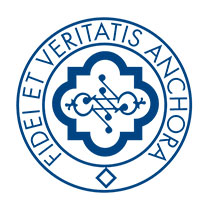What they are
The term Onlus is an acronym: it stands for “Non-profit organisation of social utility” (“Organizzazione non lucrativa di utilità sociale”). In an effort to strengthen and support private enterprise in what is commonly called the “third sector”, i.e. in the areas of voluntary and community service, social care, and so on, the legislature has provided for special benefits, mostly in the form of tax breaks, for those entities that satisfy certain conditions or requirements.
Strictly speaking, non-profit organisations are not a separate type of entity in their own right: however, certain categories of entities such as associations, recognised or not, committees, foundations, cooperatives and other entities of a private nature, with or without “legal personality”, may become non-profit organisations when specific conditions are met.
An entity wanting to use the acronym Onlus after its name must be governed by a memorandum or statute drawn up by public deed or by a notarised or registered private deed.
In addition, that deed must of necessity contain the terms provided by the law, such as the stipulation that there must be a democratic structure, a ban on distribution of profits and the obligation to use them for the purposes of social utility, and so on. These clauses are also obligatory for all those entities, recognised and unrecognised associations and committees that want to take advantage of tax benefits, especially in terms of direct taxation, or want to access public funds for the so-called “third” or non-profit sector.
Characteristics
The institution must pursue exclusively goals of social utility and its activities must cover one or more of the fields required by law: social work, social care and health, charity, education, training, amateur sport, protection of the weak, promotion and appreciation of artistic works, nature and the environment; promotion of culture and art; protection of civil rights; scientific research of particular social interest.
In addition to the ban on activities other than those mentioned above, specific limits are set for ancillary and connected activities, so as to restrict the importance of economic activities, which are to remain in such organisations as absolutely practical and marginal. Finally, the law provides that certain of the above-mentioned activities must be carried out only in favour of disadvantaged or needy persons. A special register records the entities that qualify, only by fulfilling all the above requirements.
Tax Breaks
There are many tax benefits relating to the choice of non-profit organisation: benefits in terms of indirect taxes and VAT, exemption from payment of stamp duty, the government concession tax, gift taxes and the public performance tax, as well as in the field of local taxes. Finally there are facilitations with regard to registration tax and lotteries, raffles, stalls and so on.
A set of special rules apply also to voluntary organisations and social cooperatives. Such organisations are subject to clearly defined restrictions and obligations, but on the other hand they enjoy numerous benefits and are governed by the Onlus laws.






